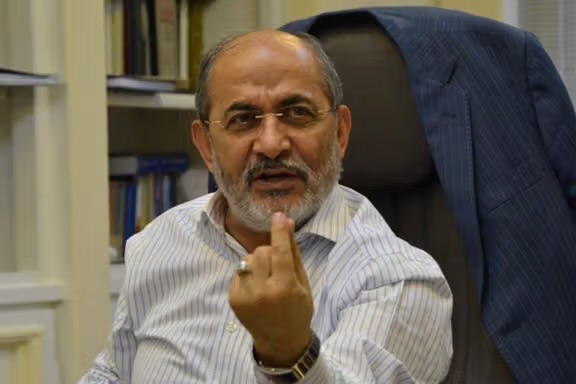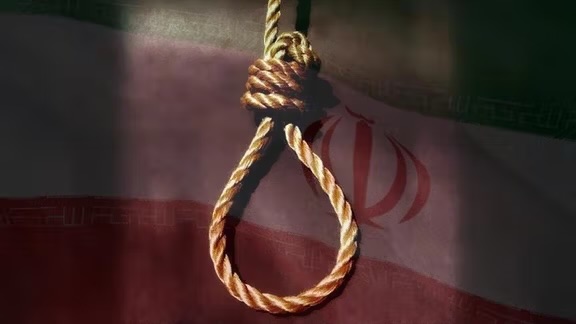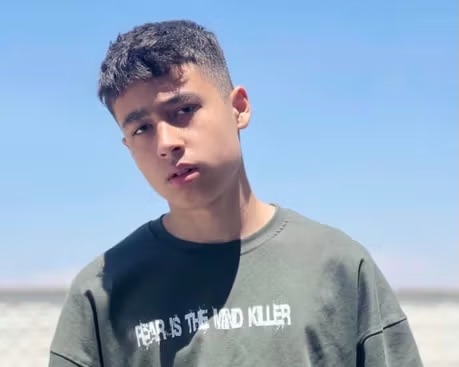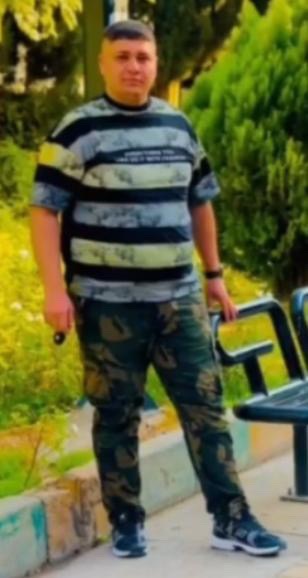
The first Minister of the Iranian Revolutionary Guard, Mohsen Rafighdoost, revealed in a video that the costs of assassination operations carried out by the Iranian regime were covered by profits generated from arms trading during the Iran-Iraq war.
In the video, published by Abdollah Abdi, editor-in-chief of “Abdi Media,” an independent media outlet, Rafighdoost mentioned the name of Gholam Ali Oveissi, a general in the Iranian army during the Shah’s era, who was assassinated in Paris in February 1983. He stated that the costs of his assassination were financed in this manner.
According to the former Minister of the Revolutionary Guard, the ministry had an account at “Bank Saderat” in Frankfurt under the name “K.M.,” and the funds deposited in this account were used for “operations that needed to be carried out abroad and could not be financed with regular funds,” including the assassination of Oveissi.
He stated that money transfers to this account began after one of the individuals sent to Spain to purchase ammunition managed to save $10,000 through skilled negotiations. This marked the beginning of transferring funds into the account.
On March 8, Rafighdoost confirmed in an interview with the “Iran Monitor” website that he was responsible for leading the assassination operations of several opponents of the Tehran regime abroad.
He spoke about the assassinations of Oveissi, Shapour Bakhtiar (the last prime minister under the Shah), Shahriar Shafiq (the son of Ashraf Pahlavi and a high-ranking naval officer), and Fereydoun Farrokhzad (an artist opposing the regime), stating: “The Basque separatist group in Spain carried out these assassinations on our behalf. We paid them, and they executed the assassinations.”
In response to this interview, Hossein Mousavian, Iran’s former ambassador to Germany, wrote on the “X” platform that he was “shocked and stunned” by Rafighdoost’s statements, and that “after 32 years, he understood the truth for the first time.”
It is worth noting that Mousavian, who was Iran’s ambassador to Germany at the time of Farrokhzad’s assassination in 1992, wrote that he had been working on “repatriating Iranians residing in Germany who wished to return to Iran.”
He stated that “Fereydoun Farrokhzad also contacted the embassy, expressed regret for his past actions, and requested to return to the country.”
Mousavian wrote that he and his colleagues at the embassy “made their utmost sincere efforts” and eventually obtained “approval from the relevant authorities and agencies in Iran for his return and safety.” However, news of his assassination was later announced.
The former ambassador said that after following up on the matter, “the relevant authorities in Tehran assured him that Farrokhzad had been assassinated by the Iranian opposition abroad,” and he continued to believe this was the truth until Rafighdoost’s interview.
Tehran’s Use of Criminals and Organized Crime Groups
Since coming to power, the Iranian regime has used criminals and organized crime groups to kill its opponents abroad.
In a research report published by the Abdorrahman Boroumand Center for Human Rights on December 22 last year, 45 years of state-sponsored violence carried out by the regime inside and outside Iran were examined.


